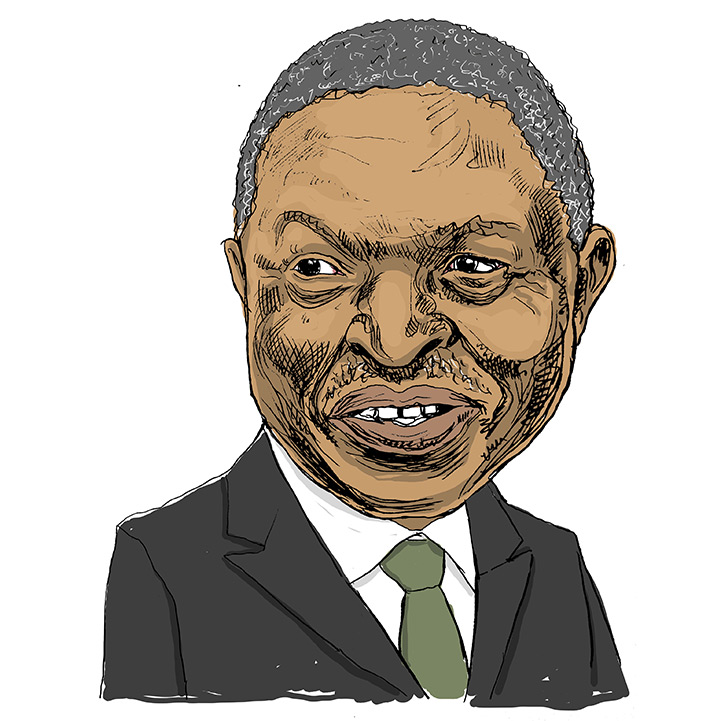Deputy President is a job that nobody wants unless they intend to use it as a springboard to pursue the top job. Presidents who think they’ve appointed a deputy who is content to support and hold the fort when needed and stay in their lane are soon disappointed. Often, they are toppled. For instructive contemporary examples of post-apartheid South Africa’s “DP problem” please see Thabo Mbeki, circa 1999-2008 or Jacob Zuma circa 2009-2012, 2014-2018.
At least with David Mabuza, Cyril Ramaphosa has the advantage of knowing exactly what his No 2 is about and what he wants. There are no deceptions. Cold comfort for a president who looks as vulnerable as Ramaphosa does, leading a party as unstable and divided as the ANC.
Mabuza knows the ANC inside out and can manipulate its internal dynamics to his own advantage. The way he ended up as its deputy president at the ANC’s Nasrec electoral conference two years ago is a prime demonstration. Moreover, unlike any of his predecessors, he can claim to have won his boss the main office. Without Mpumalanga’s votes at Nasrec —votes marshalled by Mabuza — Ramaphosa would not be in office. What is the price that Ramaphosa will pay for this service? There is the constant looking over your shoulder sure, especially with the ANC’s national general council only six months away. But that was always part of the bargain, and Ramaphosa would be a fool not to anticipate it.
But what does Mabuza bring or take away by occupying his office at the Union Building? A smart politician for sure, but does he have any ability as an administrator? Is he at least useful to Ramaphosa before he stabs him in the back?
The deputy president, unlike ministers, does not have a predefined portfolio. How much of a job the deputy does or doesn’t have is defined by the president, who delegates responsibilities. The government defines the delegated responsibilities as:
- Leading government business in Parliament;
- Leading government efforts to fast-track land reform and the co-ordination of government programmes to accelerate land reform and agricultural support;
- Assisting the president in stimulating and supporting rural and township economies through implementing empowerment models;
- Assisting the president in the implementation of rapid response interventions on service delivery and troubleshooting in service delivery hotspots;
- Co-ordinating anti-poverty initiatives through, among others, public employment programmes, integrated service delivery and enterprise development;
- Leading the South African National AIDS Council and the country’s integrated response to the challenges of HIV;
- Assisting the president in efforts towards building a better Africa;
- Supporting in investment facilitation and trade promotion;
- Leading the Human Resource Development Council and fostering collaboration between government and social partners towards addressing the shortage of skills in critical sectors of the economy; and
- Promoting social cohesion initiatives including being patron of the Moral Regeneration Movement (conceptualised by Nelson Mandela).
That’s a lot of words to express responsibility of no real consequence. No delegations to do with the economy or anything important, except to assist the president accomplish those.
The ANC gives its deputy president a lot more power and responsibility than this. With his ANC hat on as chair of the party’s deployment committee, Mabuza can decide, or at the very least influence significantly, who leads our state-owned companies or other state institutions.
The area in which the deputy president has been most visible is in Parliament, where he is the most prominent member of the executive representing the government, explaining its work and its thinking, and accounting for its mistakes. He doesn’t do particularly well in this area, all too often looking like what he ultimately is — a strongman of provincial pork barrel politics risen way above his station and his grasp of the modern world, thrust into the national limelight before anyone could polish him up and make him ready for it.
He’s twice been tripped up over the fourth industrial revolution when asked questions about it. To be fair, the question from the Economic Freedom Fighters’ Mbuyiseni Ndlozi demanded Mabuza explain “the role of nanotechnology” in the area of medical diagnosis, something Ndlozi himself would not have been able to explain. It was a silly and unhelpful “gotcha!” type of question, which Mabuza pulled up short instead of waffling about nanotech.
But eight months later the Democratic Alliance asked a similar question and again Mabuza floundered. We don’t need our government leaders to know everything about anything, but we can expect them to try to plug gaps in their knowledge when these have been previously exposed.
